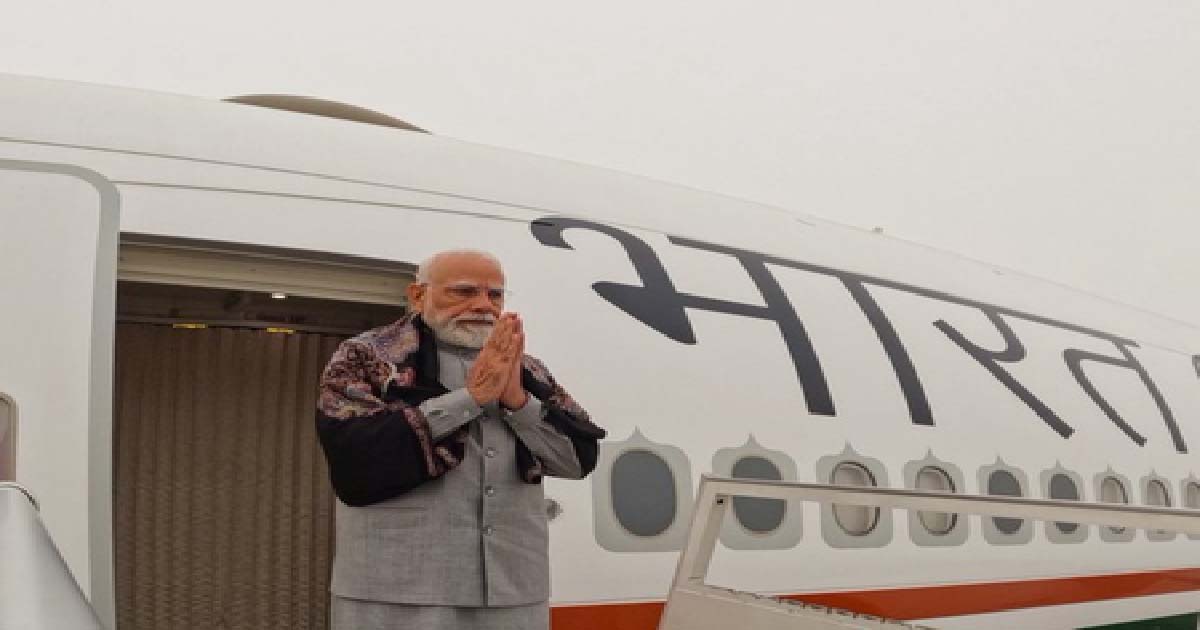Business
Did Zomato buy Blinkit to offset its losses from online food delivery?

Online food delivery platform Zomato, which saw its stock tumbling below its IPO price as India reopened and retail food industry came back on track, had acquired quick-commerce grocery delivery platform Blinkit for a whopping Rs 4,447 crore (about $568 million). Will this acquisition change its future prospects?
Zomato already owned more than 9 per cent stake in Blinkit (earlier Grofers). While the earlier Blinkit deal was valued around $700 million, the drop in Zomato’s share price reduced it to $568 million.
Zomato’s stock is hovering around Rs 70, after sliding to nearly Rs 50 (it opened at Rs 76 during its mega IPO last year).
According to market experts, Zomato is facing severe cash flow problems as its operational cost is running quite high.
Zomato Founder and CEO Deepinder Goyal said on Friday that he is not getting into the quick commerce market because growth in food delivery is now saturating.
“Food delivery has a long runway ahead. In FY22, our Adjusted Revenue grew by 109 per cent over FY21 and we expect healthy growth to continue going forward,” he noted.
According to him, quick commerce is a natural extension of Zomato’s food delivery business.
“How is it a natural extension? Because it is also a hyperlocal business, just like food delivery. And, because it also caters to a need for quick delivery of products for our customers. Quick commerce will help us increase the customer wallet share spent on our platform and also drive higher frequency and engagement from our customers,” he said in a company statement.
Zomato has grown at a CAGR of 86 per cent in the last four years to an adjusted revenue of $710 million “while the adjusted EBITDA margin has improved from (153 per cent) in FY19 to (18 per cent) in FY22”.
The acquisition came as the quick commerce (10-minute delivery) segment is brewing with new hope as people prefer groceries and other home essentials at their doorsteps within no time after making an online order.
Startups like Swiggy Instamart, Zepto and Reliance-backed Dunzo, among others, are trying to defy the current slowdown, as they add more goods and daily essentials to their kitty and deliver them to their customers.
In December 2021, Swiggy announced to pour $700 million into Instamart.
Last month, 10-minute delivery platform Zepto raised $200 million, taking its valuation to around $900 million.
India’s quick commerce market is all set to witness 15 times growth by 2025, reaching a market size of nearly $5.5 billion, according to Bengaluru-based market research firm RedSeer.
The total addressable market for quick commerce in India stands at $45 billion, and urban areas are driving this market on the back of mid-high-income households.
According to Akshant Goyal, Chief Financial Officer, Zomato, their food business is trending towards profitability faster than what they hadAthought at the time of the IPO last year.
“The timeframe for overall Zomato profitability does not change in our minds. In fact, we believe we will now get to profitability within the same timelines (as we thought last year) but with a much larger addressable market. We are also not envisaging any furtherAcapital raise to get to profitability in this timeframe,” he said.
Goyal said that as a food company, “we are already tapping into the large food delivery opportunity in India”.
“Customers (and data) are clearly signalling the macro trend that people are moving to unplanned and spontaneous purchases. To add to this, monthly order frequency on Blinkit app was 3.5x in May 2022, which is higher than that of food delivery on Zomato,” informed Goyal.
Blinkit’s gross order value (GOV) is fast catching up with Zomato’s GOV in some key markets, therefore indicating that quick commerce will add a significant new addressable market to our business in the long term.
“In a sample market like Gurugram, Blinkit GOV is already 63 per cent of Zomato’s food delivery GOV,” Goyal added.
Quick commerce naturally extends across multiple categories including beauty and personal care, electronics, OTC pharma, stationery and other gift items, among others.
The company said it will keep the Blinkit app and brand separate from Zomato.
“We will explore ways in which Blinkit can benefit from Zomato’s large customer base (and vice versa in the long term). Post the deal closure, we are going to start experimenting with various ideas that we have and see which all bear fruit, including having the Blinkit tab on the Zomato app,” the company said.
Business
Centre releases over Rs 260 crore for rural local bodies in Kerala

New Delhi, Dec 15: The government on Monday said it has released Rs 260.20 crore to rural local bodies in Kerala as part of the 15th Finance Commission grants for the financial year 2025-26.
The amount represents the first instalment of untied grants and covers all 14 district panchayats, 152 block panchayats and 9,414 gram panchayats (GPs) in the state, according to an official statement.
Untied grants are meant to be utilised by rural local bodies/PRIs for location-specific felt needs under the 29 subjects listed in the Eleventh Schedule of the Constitution, except for salaries and other establishment expenditures.
Tied Grants, on the other hand, are earmarked for basic services relating to sanitation and maintenance of ODF (open defecation-free) status, including management and treatment of household waste, human excreta and faecal sludge, and supply of drinking water, rainwater harvesting, and water recycling.
Last week, the government released Rs 717.17 crore to strengthen rural local bodies in Maharashtra as part of the first instalment of untied grants for the financial year 2025-26. The funds were released to duly elected and eligible rural local bodies in the state, covering two district panchayats (Zilla Parishads), 15 block panchayats (panchayat samitis), and 26,544 gram panchayats.
The government, through the Ministry of Panchayati Raj and the Ministry of Jal Shakti (Department of Drinking Water and Sanitation), recommends release of 15th Finance Commission grants to states for Panchayati Raj Institutions, which are then released by the Ministry of Finance.
The allocated grants are recommended and released in two instalments in a financial year.
Earlier in November this year, the Centre released over Rs 223 crore for rural local bodies in Assam and another Rs 444.38 crore to strengthen panchayat bodies in Odisha as part of the 15th Finance Commission grants.
Business
PM Modi’s 3-nation visit to further bolster trade and investment ties

New Delhi, Dec 15: As Prime Minister Narendra Modi embarked on a three-nation visit to Jordan, Ethiopia and Oman on Monday, bolstering economic and trade ties is among the key agenda items of his visit.
PM Modi’s visit is expected to open far-reaching opportunities to enhance the country’s economic footprint across West Asia and Africa.
Last week, the Union Cabinet, chaired by the Prime Minister, approved the proposed Free Trade Agreement (FTA) between India and Oman, aimed at deepening trade and investment relations between the two countries.
The approval also came after Oman’s Shura Council approved the Gulf nation’s proposed FTA with India. The talks for the trade agreement, officially termed the Comprehensive Economic Partnership Agreement (CEPA), formally began in November 2023.
India and Oman share a long-standing and multidimensional Strategic Partnership supported by strong trade ties, energy cooperation and cultural linkages. The economic and commercial relations between India and Oman are robust and buoyant.
The bilateral trade between the two nations reached $8.947 billion during FY 2023-2024, and for FY 2024-25, it stood at $10.613 billion, according to an official statement. Bilateral investment flows have also been strong, as reflected in numerous joint ventures established both in India and Oman.
Moreover, there are over 6,000 India-Oman joint ventures present in Oman, estimated to be adding $7.5 billion to Oman’s economy in the form of total capital investment over a long period.
PM Modi will hold high-level talks with the Sultan of Oman in Muscat and discuss strengthening the Strategic Partnership as well as the strong commercial and economic relationship between the two nations.
Notably, India is Jordan’s third-largest partner, with bilateral trade at around $2.8 billion. Jordan is a key supplier of fertilisers to India, particularly phosphates and potash.
Although the size of India-Ethiopia bilateral trade was around $550 million in FY25, India was the second largest trading partner for the African nation. India’s key exports include primary and semi-finished iron and steel products, drugs and pharmaceuticals, fertilisers and machinery, among others.
Business
Indian stock market ends in bullish tone over hopes of renewed FII inflows

Mumbai, Dec 13: Indian equity benchmarks made marginal losses during the week amid sustained FII outflows and uncertainty surrounding the US-India trade negotiations.
However, the market ended the week in a bullish tone with Nifty surging 0.57 per cent on the last trading day after the US Federal Reserve announced a 25-bps rate cut.
Benchmark indices Nifty and Sensex dipped 0.36 and 0.17 per cent during the week to close at 26,046 and 85,267, respectively.
Indian equities opened the week on a subdued note, amid continued rupee depreciation and negative global cues due to rising Japanese bond yields.
The US Fed rate cut later in the week eased liquidity concerns and fuelled hopes of renewed FII inflows. With supportive central bank policies, steady domestic investments, and optimism over trade progress despite unclear timelines, benchmarks closed the week on a strong note.
India’s year-on-year inflation rate based on the Consumer Price Index (CPI) was estimated at 0.71 per cent for November this year which was marginally higher than the 0.25 per cent in October, according to figures released by the Ministry of Statistics.
Broader indices underperformed, with the Nifty Midcap100 and Smallcap100 down 0.51 per cent and 0.67 per cent, respectively, in a week.
Sectoral performance was mixed, with IT under pressure while PSU banks, real estate and consumer durables witnessed selective buying.
Hrishikesh Yedve, AVP Technical and Derivative Research, Asit C. Mehta Investment Interrmediates, said that Nifty’s weekly chart shows buying interest at lower levels.
Nifty has 26,200 and 26,325 as stiff resistance levels while 25,700 will act as support zone, he added.
Analysts said that markets will likely remain positive in near future but sensitive to rupee stability, FII flow trends, trade agreement clarity, and cues from major central banks abroad.
Amidst risks from currency fluctuations and global trade uncertainties, improving earnings visibility and liquidity support provide a constructive backdrop and downside protection, they added.
-

 Crime3 years ago
Crime3 years agoClass 10 student jumps to death in Jaipur
-

 Maharashtra1 year ago
Maharashtra1 year agoMumbai Local Train Update: Central Railway’s New Timetable Comes Into Effect; Check Full List Of Revised Timings & Stations
-

 Maharashtra1 year ago
Maharashtra1 year agoMumbai To Go Toll-Free Tonight! Maharashtra Govt Announces Complete Toll Waiver For Light Motor Vehicles At All 5 Entry Points Of City
-

 Maharashtra1 year ago
Maharashtra1 year agoFalse photo of Imtiaz Jaleel’s rally, exposing the fooling conspiracy
-

 National News1 year ago
National News1 year agoMinistry of Railways rolls out Special Drive 4.0 with focus on digitisation, cleanliness, inclusiveness and grievance redressal
-

 Maharashtra1 year ago
Maharashtra1 year agoMaharashtra Elections 2024: Mumbai Metro & BEST Services Extended Till Midnight On Voting Day
-

 National News1 year ago
National News1 year agoJ&K: 4 Jawans Killed, 28 Injured After Bus Carrying BSF Personnel For Poll Duty Falls Into Gorge In Budgam; Terrifying Visuals Surface
-

 Crime1 year ago
Crime1 year agoBaba Siddique Murder: Mumbai Police Unable To Get Lawrence Bishnoi Custody Due To Home Ministry Order, Says Report












